Last updated: 25 June 2023
Updated July 2022. The district of Medway in Kent is the largest urban area in the South East of England outside of London and is home to a series of wonderful small towns – Chatham, Rochester, Gillingham, Rainham, and Strood – which are located along the River Medway. One thing you may not know is that the district of Medway has history, some very important history. It was the scene of the Battle of Medway, where in 1667 the British Navy suffered its largest military defeat on home soil at the hands of the Dutch who, under the command of Lieutenant-Admiral Michiel de Ruyter, launched a surprise offensive.
The devastating surprise attack caught the entire fleet completely unaware and resulted in numerous ships being destroyed. The pinnacle of the attack was the acquisition of the pride of the English Navy – The Royal Charles – being towed away and put on display in the Netherlands for the public to admire!
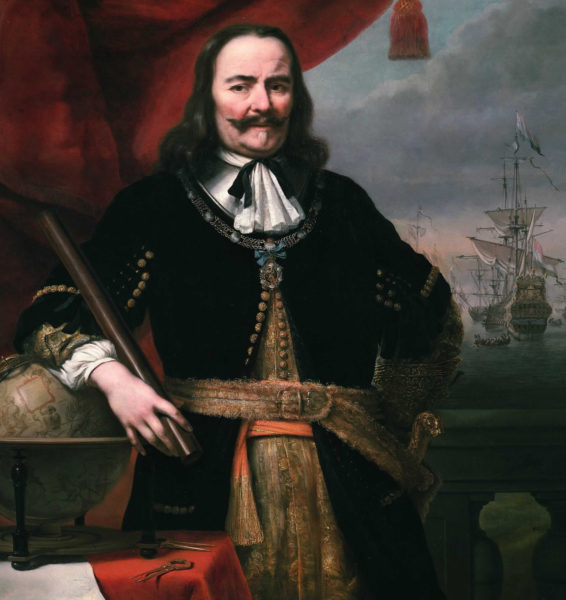
I visited the historic town of Chatham to discover the most important battle in the region, the Second Anglo-Dutch War; The Battle of Medway. Now, if you’re sitting there reading this thinking “I’ve never heard of the Battle of Medway or the Second Anglo-Dutch War or that there was even more than one of them!” then don’t worry, I was the exact same position when I started exploring the region.
The good news is that I’ve included a little background info below which should help with understanding the context of the Battle of Medway.
How Did the Battle of Medway Start?
The late 17th century wasn’t a great time in England, especially for those living in London. The Great Plague of 1665 arrived on the back of flea-infested rats and killed over 100,000 people, one-quarter of the entire city’s population. And those who were fortunate enough to survive the outbreak didn’t get much of a respite before watching half of their city go up in the flames, thanks for a careless baker in Pudding Lane.
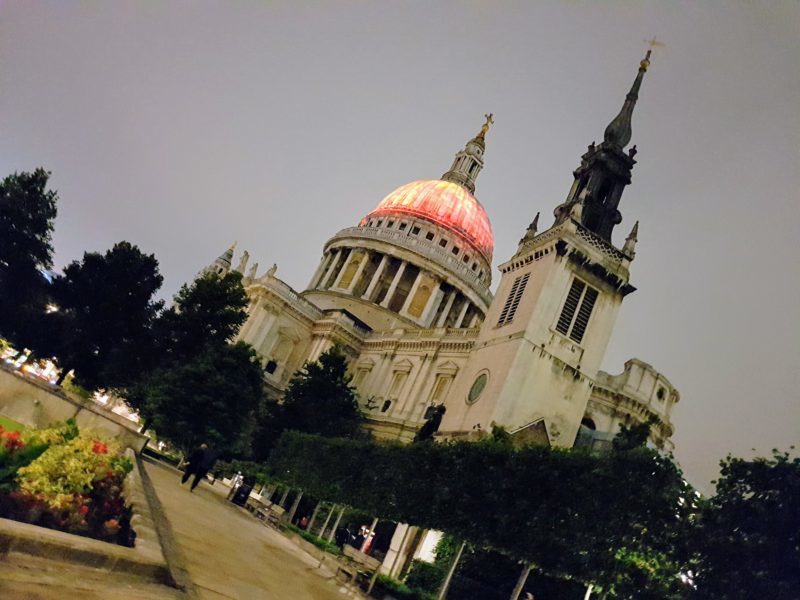
It’s far to say things were tough all over and it wasn’t just the regular folk feeling the pain, King Charles II was feeling it too. The King was in the midst of fighting of a war with the Dutch, a war that would become known as the Second Anglo-Dutch War (there was a total of four Anglo-Dutch wars fought throughout the 17th and 18th centuries).
Now taking into the account the massive impact of the Great Plague and Great Fire of London, a vital city in the kingdom, and there was suddenly a reduction in the amount of monies collected by the government in the form of taxes. The loss of income had a significant impact on all areas of the kingdom, especially the running of the navy. There was simply no money to pay for the maintenance of the existing ships, the building of the new ships, or to even pay their sailors with money, they were given debt certificates (in essence, IOU’s)
King Charles II, with a lack of resources to keep the navy afloat, decided to keep a good portion of the fleet moored at the Chatham Dockyard on the banks of the River Medway. The mooring of the English ships at Chatham Dockyard was considered to be a safe haven as it was under the protection of the Upnor Castle and the Gillingham Line (which we’ll cover in more detail shortly)
There was no other option available for King Charles II than to enter into peace talks with the Dutch and bring hostilities to an end.
Whilst peace talks were taking place, it was the Dutch (specifically politician Grand Pensionary Johan de Witt) who secretly planned to end the war with a decisive victory by launching a devastating surprise attack on English soil which would become known as the Battle of Medway.
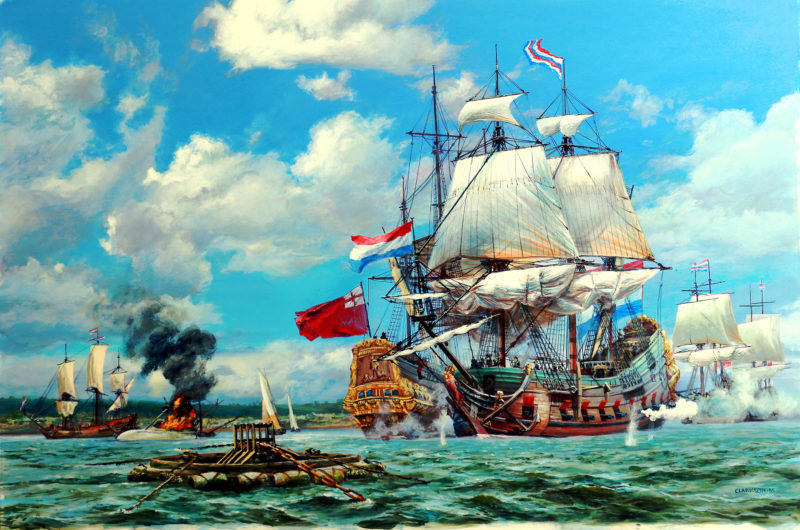
Oh, and I can understand if you think that it was really sneaky of the Dutch to launch a surprise attack during peace talks but they weren’t the only ones with a secret plan. During the peace talks, King Charles II was actually in talks with the French who planned their own invasion of the Netherlands (reclaiming lands they believed belonged to King Louis XIV). The French did invade, the War of Devolution, and King Charles II planned on using the attack as an opportunity to better terms during the peace talks.
Battle of Medway: The Dutch are coming!
The fleet of Dutch war ships, under the command of Lieutenant-Admiral Michiel De Ruyter, sailed up the River Thames and headed towards to the entrance of the River Medway. The first stop on 10 June 1667 was the the Garrison Point Fort on the Isle of Sheppey, where the two river met.
It didn’t take long for the Garrison to fall as most of the soldiers deserted the fort which left only seven soldiers to fight however they were no match for the 800 Dutch marines who landed nearby. Oh and speaking of Dutch marines, they were under strict orders not to loot or plunder when seizing a town in an effort to shame the English for past transgressions.
The Dutch fleet continued up the River Medway before arriving at the Gillingham Line, a large chain stretched across the river banks, designed to protect the moored English Navy ships by preventing ships from passing.
Like something you would expect to see in a big budget blockbuster movie, the grand Dutch warship, Pro Patria, charged towards Gillingham Line, under cannon fire from Upnor Castle, and broke through defensive chain and continued its assault on the unprepared English navy. (To be fair, historians currently argue whether the chain actually snapped or whether the Pro Patria sailed over the top of it. Personally, I like the breaking-the-chain version)
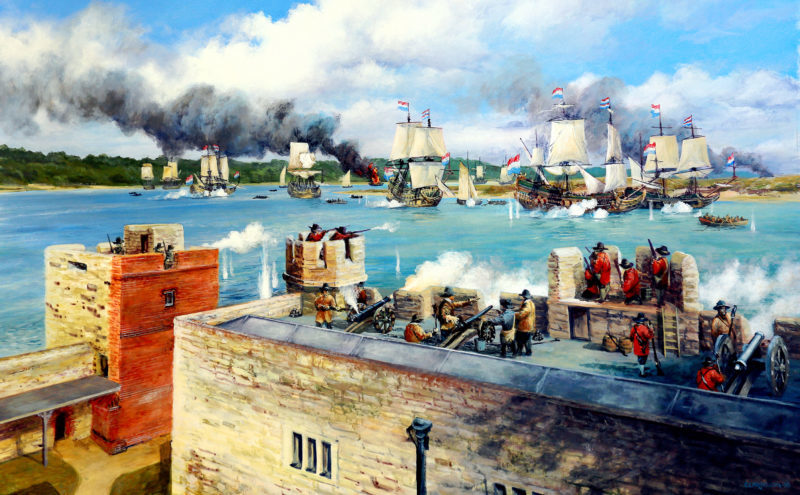
As the Dutch warships continued its approach up the river, they attacked and destroyed many of the Royal Navy’s finest. However, none was more prized than the HMS Royal Charles, which was considered to be the crown jewel of the English Navy fleet.
Incredibly, the HMS Royal Charles was captured without a shot being fired and it was then towed back to the Netherlands (along with the other high profile warship, HMS Unity) where it was put on public display for the general public to marvel at, and dance on! It became a symbol of the strength of the Dutch Navy. Today you can visit the stern piece of the HMS Royal Charles in one of Amsterdam’s most popular museums; the Rijksmuseum.
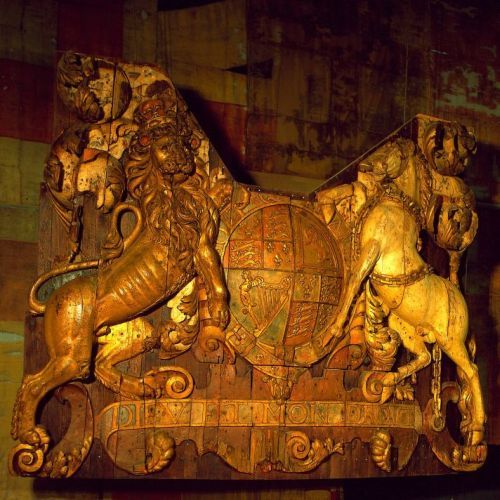
As the Dutch fleet continued its incursion up the River Medway attacking and setting alight the various ill-defended ships, they reached Upnor Castle. Upnor Castle was the key fortification that was well placed to defend the English fleet. In fact, Upnor Castle was built for Queen Elizabeth I in 1559 to protect her ships at anchor and the Chatham Dockyards. The soldiers in the castle were low on ammunition and manpower and were ultimately no match for the advancement of the Dutch fleet.
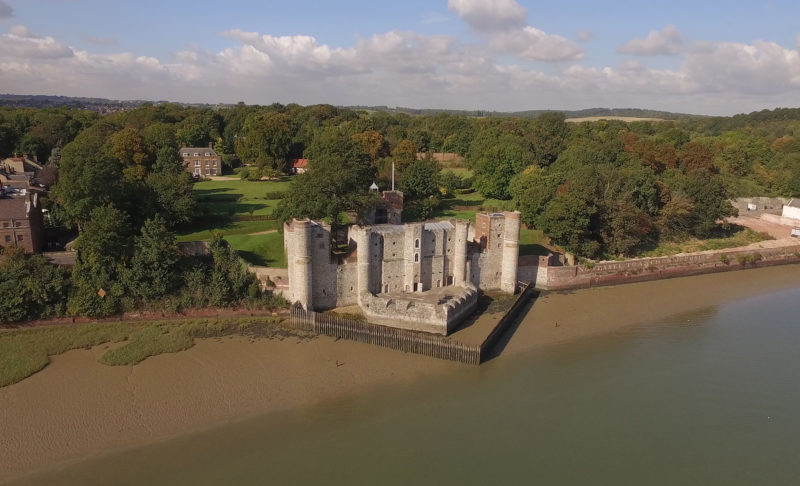
The withdrawal of the Dutch fleet on the 14 June 1667, a few days after the attack commenced, was due to increased resistance from English reinforcements. As they set sail for their return to the Netherlands (with their prizes of the HMS Royal Charles and HMS Unity in tow), the Dutch fleet made an effort to set alight any remaining ships on the river.
All our hearts do now ake; for the newes is true, that the Dutch have broke the chaine and burned our ships, and particularly “The Royal Charles”, other particulars I know not, but most sad to be sure – from the diary of Samuel Pepys
Whilst the Battle of Medway is considered a decisive Dutch victory and the largest British Naval loss in history, it has now become a reason to reflect and celebrate the friendship that exists between the United Kingdom and the Netherlands.
The Battle of Medway: From Fire to Friendship 2017
It was 5 years ago in 2017 where Medway Council and The Historic Dockyard Chatham commemorated the 350 years since the Battle of Medway with a special two week programme of events, including an appearance of ships from both the British Royal Navy and Netherlands Royal Navy. The grand finale – Medway in Flames – was an incredible visual event retelling the Battle of Medway which will involve big screens, a large water screen, digital projection, and fireworks.
Disclaimer: Roaming Required worked with Medway Council to discover the Battle of Medway. Whilst travel was provided, we were not financially compensated for this post. All thoughts and opinions expressed remain solely our own.
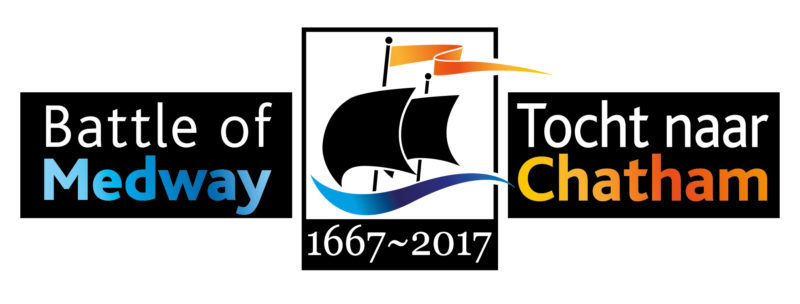
Hi, interesting read. As a Dutch guy I’ve heard about this battle in school, but it’s not a huge part of the curriculum. I actually just read in the news yesterday a Dutch prince was there, so it’s driving attention in Dutch media this week.
Interesting to know a Dutch motion picture was released two years ago called ‘Michiel de Ruyter’, which tells a nice story, also about the political situation in the Netherlands back then. It’s available in English as ‘Admiral the movie’: http://www.admiralthemovie.com/
Greetings from the Netherlands
Thanks very much Mark, really interesting to know Medway is making Dutch news at the moment.
Hello. In 1666 the English plundered and destroyed Terschelling, an island of the Netherlands. This action was due to that action. Maybe interesting for you to look it up. https://en.m.wikipedia.org/wiki/Holmes%27s_Bonfire
That’s really interesting Douwe, I will read the link you’ve kindly provided.
My parents told me about this event, it is not something that was highlighted during my time at school. And in England nobody knows about it or doesn\\’t want to know. But it was a great accomplishment!
From other people who have also commented here Raymond it sounds like this section of history has been omitted from many curricula.
I (a Dutchie) happened to stumble on this article via Facebook, and thought I might know it. Turns out I do, not from history classes though. However, this battle was also featured in a movie on the life of Michiel de Ruyter, produced in the Netherlands. Might be worth a watch if you have an interest in this time period, although it does (of course) focus on Dutch history primarily. Still, De Ruyter’s tale is legendary in the Netherlands even today, so I can recommend it!
http://www.imdb.com/title/tt2544766/
That’s really interesting Erik thanks very much for the information about the movie. I’m sure Russell will be really interested in seeing it.
[…] The 350th anniversary of Battle of Medway. […]
Hi Russell,
Great article. We’re based in a small village just outside the Medway towns, and so are planning on visiting the celebrations. It’s even more interesting as we’re in The Netherlands on a road trip, and and any thoughts of nations at war have long past – these folks are really friendly,
Gary
Hi Gary,
Thanks so much for the kind comment, I’m thrilled to hear that you’re heading to the festivities! We do love a good road trip and visiting the Netherlands by car has always been something we’ve wanted to do more of. I hope that you’ve been having a great trip, have any of the Dutch locals you’ve spoken to know about the Battle of Medway?
Hi Russell,
The road trip was fabulous; we’d highly recommend it – we’ve a few posts coming out over the next few weeks on the adventures.
Interestingly we did speak to a few locals on the subject, and yes they knew of it but it’s not part of their curriculum at school. They focus on American history and more modern aspects of Dutch history, which I thought was a little unusual.
I found the history of the Battle of Medway interesting, and how it fitted in the timeline after the Plague, and the Great Fire of London and was particularly a dark time for the British.
Still one thing is very true, the Dutch are an extremely friendly nation of people from our experience.
Cheers,
Gary